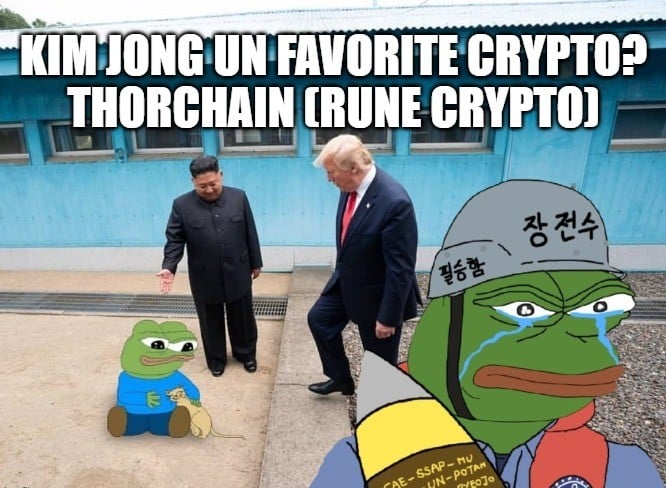
How RUNE Became Kim Jong Un's Cryptocurrency of Choice
A dive into the rise of THORChain (RUNE) as a favored cryptocurrency linked to North Korea, following the Bybit exchange hack.
THORChain (RUNE), once celebrated for enabling trustless cryptocurrency exchanges, has unexpectedly become a preferred choice for North Korean leader Kim Jong Un. This association arises amid accusations linking the platform to the laundering of stolen assets, transforming its decentralized ethos into a controversial topic. The ensuing discussions have sparked vigorous debates about the balance between blockchain innovation and its potential misuse.
Kim Jong Un Crypto Strategy: The Bybit Hack and THORChain’s (RUNE) Role
The crisis unfolded after the historic $1.4 billion hack of the Bybit crypto exchange in February 2025, marking the most significant cryptocurrency theft to date. The notorious Lazarus Group from North Korea infiltrated Bybit’s Ethereum wallets, obtaining approximately $1.2 billion, which was then funneled through THORChain’s decentralized platform, enabling quick cross-chain transactions between major cryptocurrencies like Bitcoin and Ethereum.
“Thorchain’s inaction regarding the flowing of stolen ETH through its platform is concerning,” noted an observer on social media. Translation: Thorchain’s failure to intervene could lead to severe repercussions.
Blockchain security expert Taylor Monahan summarized the concerning appeal for illicit activities: “THORChain enables transitions from Ethereum to Bitcoin without leaving behind traces. Prior to this, such swaps could only happen with banks imposing freezes on transactions.”
The decentralized and largely unregulated nature of THORChain has made it increasingly favored as a tool for laundering money on the blockchain.
Ethical Concerns For RUNE Crypto and Community Backlash
These revelations have raised significant ethical issues for decentralized platforms. Unlike other crypto services that thwarted transactions connected to the Bybit hack, THORChain’s teams resisted intervention even after receiving requests from law enforcement like the FBI. Despite initially pausing Ethereum swaps in response to the FBI’s alert, THORChain resumed operations within 30 minutes, yielding to community backlash. JP Thor (John-Paul Thorbjornsen), the project’s founder, asserted, “The protocol runs and swaps seamlessly, regardless of the surrounding chaos; it’s thriving.”
Some in the cryptocurrency community disagree.
“With a major portion of transactions tied to stolen funds from North Korea’s monumental heist, this should qualify as a national security risk,” warned a THORChain developer known as “TCB” on social media.
Is THORChain Truly Decentralized?
THORChain presents itself as a decentralized utopia reliant on validators and an ecosystem dependent on RUNE staking. However, a single developer successfully shutting the network down in January has shattered that narrative of decentralization for many, initiating fresh claims of “decentralization theater.”
The implications venture beyond reputation; platforms like Tornado Cash and Bitzlato have already encountered sanctions and crackdowns due to their involvement in laundering illegal funds. THORChain could be the next target for scrutiny. A former treasury official coolly remarked, “Those profiting from the Lazarus Group’s illicit gains face an OFAC dilemma.”


